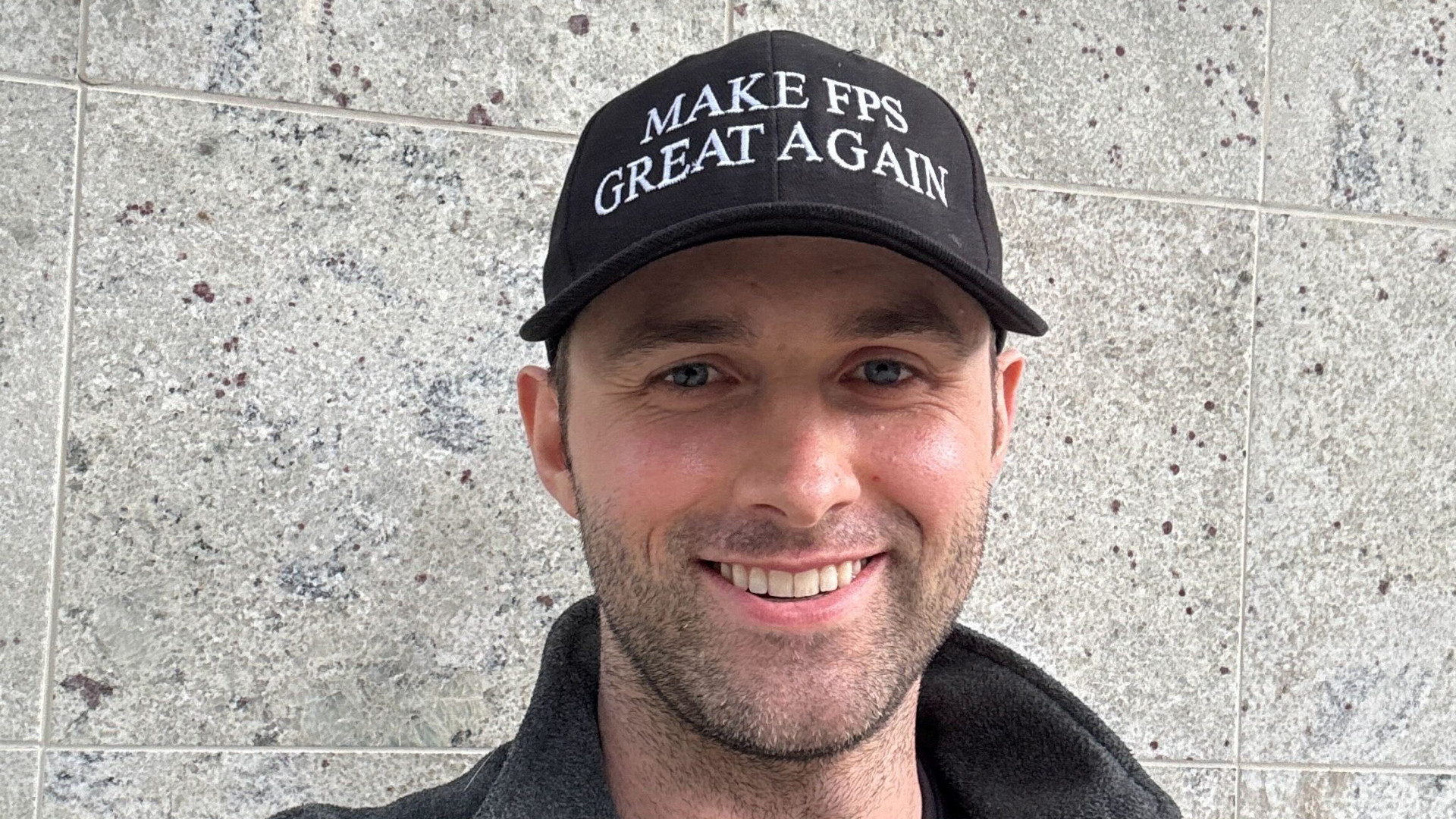
The Peripheral premieres globally Oct. 20 on Prime Video.
Surprisingly, there hasn’t been an overabundance of author William Gibson’s noir cyberpunk getting adapted to film or television. He’s certainly heavily inspired some seminal sci-fi films like The Matrix and Strange World. But Prime Video’s series take on The Peripheral, based on Gibson’s book of the same name, is the first direct adaptation via executive producers Jonathan Nolan, Lisa Joy, and Vincenzo Natali. A complicated tale set in the near futures of 2032 and 2070, it explores how technology is amplified as a conduit for war, atrocities, connection, and perhaps the salvation of the human species. Despite being slickly produced with top-notch visuals, The Peripheral sags under the weight of a story with too many plotlines to follow that aren’t that compelling and a criminally sluggish pace.
If anyone’s qualified enough to bring Gibson’s style of futuristic sci-fi storytelling to the screen, Nolan, Joy, and Natali certainly have earned the right to give it a go. Nolan co-created Person of Interest, while Joy directed Reminiscence and Natali directed episodes of Hannibal, The Strain, and Westworld. They know their high-end sci-fi, of which half of The Peripheral can be categorized in its 2070 storytelling. The other half is set in rural, small-town Canton in 2032. It’s there that the Fisher family resides. Siblings Flynne (Chloë Grace Moretz) and Burton (Jack Reynor) care for their blind mother on their meager paychecks. She works in a small 3D printing shop and he’s a military veteran who plays VR SIM games for money or Beta testing. However, Flynne is better at it and often uses his handle/avatar to earn the cash to buy mom’s expensive, uninsured medicine. It’s in this scenario that she Beta tests new tech and software that puts her in future London where she’s guided by the voice of Aelita (Charlotte Riley) to complete tasks in remarkably realistic environments. One of those missions almost turns deadly and puts an actual bounty on Flynne/Burton’s head.
They’re eventually contacted by Wilf Netherton (Gary Carr) and Lev Zubov (JJ Feild) who actually exist in 2070 London and need Flynne’s assistance in finding Aelita for reasons that will be revealed later. Only interested in making enough money to take care of their mother free and clear, an agreement is made to scratch one another’s backs. And of course, that doesn’t run smoothly. With the action see-sawing between 2032 and 2070, the series covers both the broad view of how machinations in 2070 are key to humanity surviving via the information Aelita holds and the micro view of the Fisher family’s drama in their insular small town.
On paper, there’s an interesting story here about the perils of our future selves trying to dig themselves out of the mistakes of the past via technology, and the equalizer technology can be because economic boundaries and classism are rendered semi-moot inside SIMS scenarios, as evidenced by the skills of the Fisher siblings. But unfortunately, once you get past the initially impressive production design and special effects, the series itself is more boring than breathtaking. The episodes are way too long, all averaging one hour plus, which means the storytelling is more lackadaisical than propulsive. There are a lot of scenes with characters talking in cars, or on city streets or around dinner tables, but it’s never balanced with any sustainable tension, suspense, or heart-stopping action. There are occasional bursts of the latter here and there but otherwise, it’s exceptionally talky, featuring a myriad of 2070 actors chewing the scenery while dipping into the Big Book of British accents. Only Carr acquits himself well, giving the most understated and empathetic performance of the future ensemble.
Carr also has some good chemistry with Moretz, but overall she seems a bit unsuited for the demands of the role. As Flynne, she doesn’t have the presence that is needed to shift gears between her everyday Canton self and the swagger and charisma that is lacking during her London sojourns. She’s playing Flynne in one gear which adds to the general underwhelming energy the series can’t seem to overcome. The writers’ commitment to telling the Canton stories equally also doesn’t help because that part of the show plays like a small-town soap opera, complete with a local drug tycoon storyline and the individual stories of Burton’s fellow unit buddies trying to navigate their post-military careers. They’re sorta interesting, but not in comparison to the more melodramatic and visually grandiose future London stories. They don’t reside well next to one another.
A tighter edit and commitment to sharing what the overarching goals are for Flynne and the 2070 contingent would have helped the series a lot.
The show is also glacial slow about revealing information or mythology that would be helpful in picking up the overall pace. A tighter edit and commitment to sharing what the overarching goals are for Flynne and the 2070 contingent would have helped the series a lot. By the end of Episode 6, it feels like what finally happens should have come about three episodes earlier. And worse, there’s not a lot of care about knowing what comes next.






